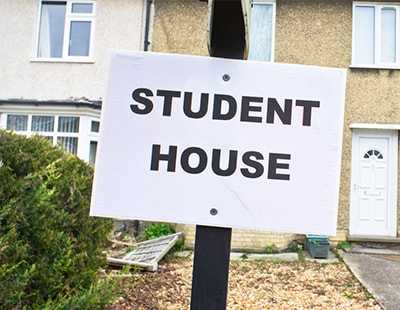
Being a student landlord can be very lucrative, especially if you choose a densely populated investment location. Student properties are always in high demand and rental income is regular, making for attractive returns.
As most students live at home with their families before starting their studies, online advertising is essential. It is estimated that around 80% of students use Facebook and almost 75% regularly look online for new accommodation. Therefore, interacting with social media and student-friendly platforms is an effective way of advertising your property compared to more traditional routes, such as a local newspaper.
Considering the type of tenancy agreement you wish to provide is a crucial step. Most student landlords opt for joint tenancies. In this instance, all the students living in your property sign the same tenancy agreement, meaning that if one of the tenants fails to pay their share of the rent, all of them can jointly be held liable.
It also means that if one of the students drops out of the tenancy agreement, it is up to the remaining students to either find a replacement tenant, or foot the remaining share of the rent. If a tenant is replaced, make sure that you get all renters to sign a new agreement. You would usually only offer a single tenancy agreement if you are renting out each of your bedrooms individually.
You’ll also need to decide whether you wish to include bill payments within the cost of renting your property. Students who have never rented a property before may prefer paying one amount for the entire property over individual payments, with approximately 70% of students rating inclusive bills as either an essential or important factor when choosing a property. Inclusive bills are easy to set up and will make your property a more desirable option for many potential renters.
Make sure your tenants are aware that they need to pay a damage deposit prior to moving in. They should know that they are responsible for cleaning and maintaining the property, or they will face deductions from their deposit when their tenancy is up. It would be an idea to specify some common examples of damage which would lead to a deduction e.g. paint being taken off by blue tac.
You should remind your tenants that they will need to take out their own contents insurance policies since landlord contents insurance only covers items that belong to you. Since most students do not have much furniture of their own, you will probably have to rent your property fully furnished. Any furniture you do provide will have to be insured in case of damage.
Be sure to tell your insurer that you are going to be renting to students since you need to ensure that you are completely covered by your claim. If you already have a policy but you are new to renting to students, you should either amend your policy, or get a new one.
Every year student properties are a target for thieves. While most students come to university equipped with an array of electronics, they are not always the most security conscious. Make sure that you instruct your tenants on safety precautions you wish them to follow e.g. double locking the door or not giving keys to friends.
There are also several important legal considerations when it comes to being a student landlord. For instance, while students are exempt from council tax, they must get an exemption certificate from the council so that you are not made liable to pay for outstanding council tax. In addition to landlord responsibilities like gas and fire safety regulations, you should also make sure that you obtain a House in Multiple Occupation (HMO) licence. You need a HMO licence if you are renting a property where three or more of the tenants are not related. Failing to get one will result in huge fines.
Prior to conducting viewings, you are required to give current tenants enough notice, at least 24 hours. You should always specify whether the tenants are to give you access to the property as this will influence how much notice you should give them. Tenants also have a right to reschedule when you can have access to the property if the appointment time does not suit them. You also have the right to request entry to conduct occasional check-ups of the property to ensure it’s in good condition.
It’s important to have a good relationship with your current tenants. Having a good reputation as a landlord within the student community could increase the popularity of your property for future academic years. Gaining tenants through previous tenants’ recommendations is much cheaper than spending the money on a letting agent to find new occupants.
You may find that you receive many emails or calls from your student tenants. Especially when you manage multiple units it can be difficult to always stay in the loop with all of them. Try limiting interactions via an app to make communication more efficient, eliminating the chance of an email being overlooked or not being sent to all parties involved. Arthur Online and Go Tenant! are both property management systems which have an app specifically designed for tenants to access all tenancy-related documents and to message the landlords directly.
*Marc Trup is the Founder and CEO of Arthur Online









.png)

.jpg)








Join the conversation
Be the first to comment (please use the comment box below)
Please login to comment